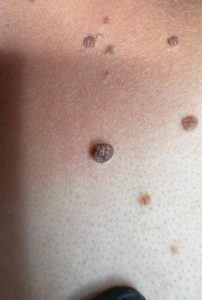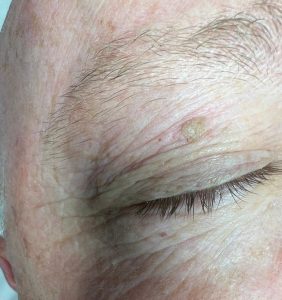
Why do we get moles?
Why do we get Moles? The development of moles is influenced by a combination of genetic factors and sun exposure. Genetics play a significant role; if your parents have many them, you’re likely to have many as well. Additionally, certain gene mutations can predispose individuals to develop more moles, including atypical ones. Atypical moles, are ones that differ in appearance from common moles. They are larger, have irregular shapes, and display a variety of colors rather than a uniform shade. These are often flat or slightly raised, and their borders may be indistinct, blending into the surrounding skin rather than having a clear, well-defined edge. Sun exposure is another crucial


